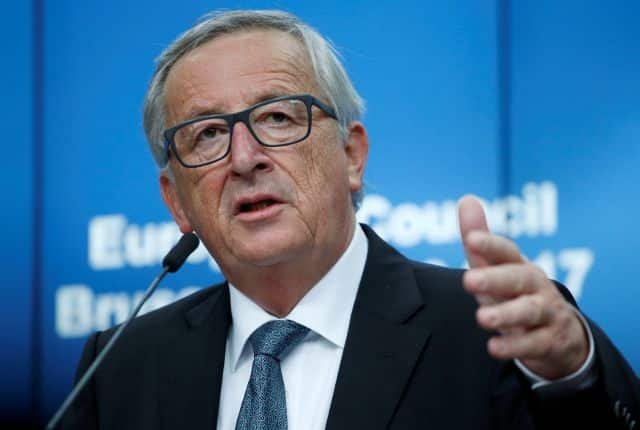Statements by former European Commission president Jean-Claude Juncker on the Cyprus issue, in which he blamed the Greek Cypriot side for the stalemate in the 2017 Crans-Montana talks, are his “personal opinions”, the government spokesman said on Thursday.
Spokesman Konstantinos Letymbiotis said Juncker acknowledges there are prospects for a Cyprus settlement, the EU can help in that direction, and President Nikos Christodoulides is trying to resume negotiations from where they left off.
Letymbiotis added that UN envoy for Cyprus Maria Angela Holguin would be briefing the UN secretary general next week and would discuss the next steps.
In an interview with the Cyprus News Agency (CNA), to mark Cyprus’ 20th EU accession anniversary, Juncker said he did not believe that there were zero prospects for a Cyprus settlement and that Christodoulides is “a man of good will and an excellent leader”.
Juncker said the EU must be there if asked by the two parties but cannot take initiatives on its own.
But he noted that the negotiation process that ended in 2017 “was the last really useful period” and blamed Cyprus for the impasse.
“We should have invested more, all of us, in this issue,” Juncker said,
“I think the main problem was not Erdogan [Recep Tayyip, Turkish president] and it was not Akinci [Mustafa, former Turkish Cypriot leader], but the main problem was the south of the island, because they were not really prepared to jump.”
Juncker said he was disappointed because “I invested much of my time in this issue”.
Referring to the leadership of the Greek Cypriot side, he said that “although I like them and I love those of the south, they did not spend enough efforts to explain that this was a moment to jump.”
“It is clear that there was still an important distance among the delegations as far as a certain number of issues is concerned and the agreement was not possible,” he said and expressed “deep gratitude and appreciation to the leaders of the two communities” as well as to the representatives of the guarantor powers and the EU.
“I had talks with Erdogan, who was more positive during that period than the period before. Whenever I talked to him, when I was a prime minister and at the beginning of my presidential mandate, he had foam on his mouth when we were discussing the Cyprus issue. And then suddenly he turned to be much more accommodative and more open minded to a final conclusion of this drama,” Juncker said.
According to Juncker, this was the last occasion for a deal because “my impression, having talked to so many Cypriots, mainly young Cypriots, was that the youngsters in Cyprus were taking some distance on this issue because they have grown up in the situation which was the dead situation. They were not really suffering from this. They were losing interest in the final conclusion of the issue.”
He added that it is Erdogan who makes the final decisions in the northern part of Cyprus, which he described as “uncomfortable” for Europe.
Juncker stressed that “we have to reconnect with the north and with Turkey and with Greece” since all these partners have a say in the conflict.
Referring to the current situation, Juncker said “this is a moment of preparation for future negotiations” and that he would not take recent statements “too seriously”.
“Erdogan has the power to conclude and is the one who has a say in the northern part of Cyprus, which for us is very uncomfortable, because we don’t like that idea that a foreign power is taking over the lead of the negotiations,” he said.
“But without Erdogan nothing is possible.”
On the role of the EU, Juncker said he always thought this should be “an issue for the EU” and that “perhaps things would have been easier if we had put all these issues in the hands of the EU”.
Juncker noted a useful role for the EU would be a go-between in the Cyprus-Greece-Turkey triangle.
Juncker also referred to the financial crisis, saying Cyprus was “very successful” in dealing with it, adding that in March 2013 “Cyprus was badly treated by the Eurogroup during the first discussion round, but then Cyprus took its fate in its own hands.”
He added that the way the people of Cyprus were treated was “deeply unjust” and that today they can be “proud of themselves” as Cyprus is now a “safe country”.
Asked about the golden passport scheme, Juncker said he was “never in favour of this stupidness of delivering parts of your sovereignty via passports to people coming from elsewhere.”







Click here to change your cookie preferences